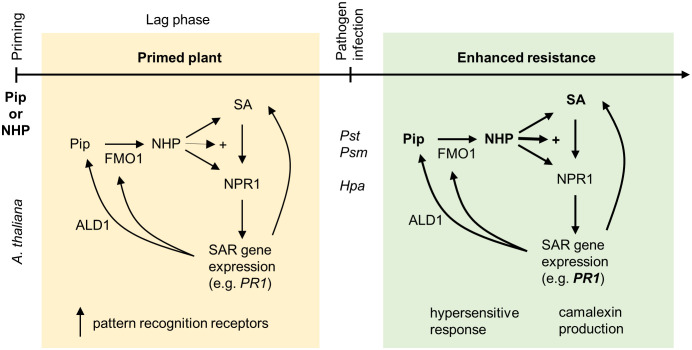Figure 2.
Priming by pipecolic acid and N-hydroxypipecolic acid. Application of NHP or its biological precursor Pip primes A. thaliana for enhanced pathogen resistance. Pip is metabolized in plants to NHP by the pipecolate N-hydroxylase FLAVIN-DEPENDENT MONOOXYGENASE1 (FMO1). NHP accumulates in primed tissue and further induces its own biosynthesis as well as the production of SA through the transcriptional coregulator NPR1. Furthermore, NHP-treated plants equip themselves with pattern recognition receptors. Induction of defense genes takes place directly after NHP application; however, the effect is low in comparison with the consequences of an infection with Psm and/or Hpa. The SA-driven response to pathogen infection, which is dependent on NPR1, is enhanced (indicated by +) due to the presence of NHP. In addition, NHP stimulates a SA-independent transcriptional response. Together, this primed response is manifested by elevated expression of pathogen-responsive genes, camalexin production and induction of a hypersensitive response. The figure has been modified from Yildiz et al. (2021).

